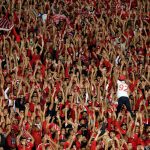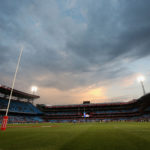Icasa: Will new regulations kill South African sports?
Sporting bodies were united against Icasa’s proposed broadcasting rights amendments, which will affect their revenue and players. Some vowed to challenge the matter up to the highest court.
Author:
21 June 2019

The lawyers representing some of the country’s biggest sporting bodies turned the public hearings on the proposed broadcasting rights regulations amendments into a trial, going so far as to tell the Independent Communications Authority of South Africa (Icasa) they were prepared to fight the matter all the way to the highest court.
The Premier Soccer League (PSL) and SA Rugby spoke militantly in their admissions. The two organisations sang from the same hymn book, along with all the other sporting bodies heard during the week-long public hearings at African Pride Irene Country Lodge in Centurion, Gauteng, from 27 to 31 May. Passing these amendments will be the death of sport as we know it, they claimed.
Icasa wants to change how broadcasting rights are sold in the country by levelling the playing field, which would lead to all South African households having more access to various sport events. That’s the plan on paper. But as the various organisations stressed, this is impossible to achieve without crippling or even killing their business.
The amendments have widened the scope of what determines an event to be of “national interest”. Previously it was only the national teams and big sporting events, such as World Cups, the Olympics and the Africa Cup of Nations (Afcon). The new amendments include competitions like the Currie Cup, Super Rugby, all PSL matches, netball matches, the CAF Champions League and the CAF Confederation Cup among others.
Sports bodies fight back
Icasa wants these competitions to be shown on free-to-air television, but major satellite service MultiChoice owns most of the exclusive rights to broadcast these events. It has paid billions of rands to air the content on its SuperSport channels, which are out of reach financially for most South Africans.
The exclusivity of these broadcasting rights has seen sports bodies make money while also increasing the number of MultiChoice subscribers. Those who can’t afford to pay the premium monthly subscription to access all the SuperSport channels, which is close to R1 000, have been left in the cold. They are unable, for instance, to watch the ongoing ICC Cricket World Cup or the Fifa Women’s World Cup in France, where Banyana Banyana made their debut in the global showpiece.
The aggressive posture adopted by the sporting bodies in the hearings persisted despite chairperson Palesa Kadi, her deputy Nomonde Gongxeka-Seopa and councillor Zola Yeye impressing on attendees that the draft regulations were not final and that the inquiry was not adversarial, but a process of engagement so that the various stakeholders could air their views and assist the regulator in striking a balance between competing interests. But finding that balance is almost impossible.
The majority of South Africans will continue being denied access to these events if these amendments are not passed. If they are, the future of sport in the country looks bleak.
PSL chair Irvin Khoza reminded Icasa that the organisation is a private institution that enjoys no state support and that, as administrators of professional football, they opposed the listing of all PSL matches as national sporting events.
Shutdown threat for the PSL and SA Rugby
PSL matches might be popular but that does not mean the league should give away its broadcasting rights for free, said Khoza. More than 14 million people follow the South African league and PSL matches remain the most affordable for spectators, with tickets to attend the games starting at R40.
In terms of the 2010 sports broadcasting regulations, only 12 out of 538 PSL matches were listed as national sporting events. That meant the PSL was able to generate revenue by selling exclusivity to MultiChoice, while a decent number of its games are broadcast on state-owned South African Broadcasting Corporation (SABC) television and radio stations. SuperSport paid R2 billion in 2011 for these broadcasting rights and “significantly more than R2 billion” for their renewal in 2017; the exact figure wasn’t revealed.
In the 2018 financial year, the PSL had a revenue of R940 million. Of this, 64% came directly from broadcasting rights while 34% came from sponsorship and 1% from ticket sales. This was revealed by the PSL during the hearings. That financial muscle has seen the PSL being able to give Premier Division and National First Division (NFD) clubs substantial monthly grants.
NFD clubs receive monthly grants of R350 000 while those in the Premier Division get R1.5 million a month. In its submission, the PSL revealed that this financial injection has led to a “higher player retention by clubs who are now financially able to hold on to their stars, resulting in a higher level of competitiveness among the clubs in the league”.
It is this financial strength that makes the PSL the most represented African league in Afcon, with 42 players. A drop in revenue will not only see a decline in the PSL’s power to attract talent but also in its ability to pay clubs their monthly grants. Khoza said this will ultimately lead to the “end of professional football as we know it in our country”.
Related article:
“There can be no justification for cutting our funding,” Khoza said in January after a meeting with the PSL’s board of governors. “It [Icasa’s proposed amendments] is a deprivation of our property rights. The proposals that have been made are ill-conceived, they aren’t in accord with international or best practices and will ruin our industry. We will defend ourselves vigorously against these proposals, using every possible available avenue. We will continue until their withdrawal … at the end of the day, if this isn’t resolved, we will shut down the PSL.”
Like Khoza, SA Rugby chief executive Jurie Roux said that if the proposed amendments are passed, there won’t be rugby to show on television.
The organisation’s revenue comes mainly from the sale of broadcasting rights, with 57% of SA Rugby’s coffers coming from their deal with MultiChoice. Roux said these amendments will have a negative impact on the players. The organisation is already dealing with a decline in stadium attendance and Roux told Icasa that major sponsors are reluctant to invest in the game of rugby because of the regulatory uncertainty.
Related article:
Advocate Hamilton Maenetje told Icasa that the draft regulations arbitrarily deprived his client, SA Rugby, of the right to property in the form of intellectual property (IP) rights and that this was unconstitutional. “Icasa did not act in a manner that is lawful, reasonable and procedurally fair. In drafting the regulations, they went beyond the remit of their power,” said Maenejte.
Cricket South Africa (CSA) withdrew from making an oral submission at the hearing. But there were plenty of other sporting bodies eager to speak on the matter. Boxing South Africa (BSA) painted an extremely bleak picture of where boxing is in South Africa in terms of broadcasting on free-to-air television.
The last time there was a live boxing match shown on an SABC television channel, according to BSA chief executive Tsholofelo Lejaka, was in 2016. “People want certainty. Sometimes one opens a TV on Friday and there is no boxing, after being promised by the public broadcaster that there will be a live broadcast. That adds to the uncertainty and the drop in viewership of boxing,” said Lejaka.
Employees agree with employers
Rarely do labour movements agree with their employers on matters affecting workers. At the Icasa inquiry, however, unions representing rugby, football and cricket players backed their employers in rejecting the draft regulations.
The South African Cricketers’ Association, South African Football Players Union (Safpu) and South African Rugby Players Association agreed on the negative impact these regulations would have on the players. Safpu said these regulations would subject players to poverty.
The South African Sports Confederation and Olympic Committee (Sascoc) told Icasa that the intention of the regulations to reach a wider audience and make sport accessible was a “noble intent, which Sascoc supported”, but that reaching a wider audience “did not require overregulation”.
“National federations are the content rights holders, but nothing in the proposed draft regulations seeks to protect the IP rights of sports bodies,” said Sascoc. The mother body of Olympics sports found it puzzling that the public broadcaster would have the obligation to purchase rights at the market rate, but has the first and last right of refusal to purchase the content.
For Sascoc, this would lead to bad market behaviour and protectionism. It said that because of a free-market approach, Netball South Africa (Netball SA) and the South African Hockey Association have professional leagues that are being broadcast on pay television.
Sascoc said that without a subscription broadcaster investing in Netball SA, we wouldn’t be in a position to host the INF Netball World Cup 2023.
The SABC’s financial woes
With the SABC going through financial problems and the public broadcaster admitting in a parliamentary committee that it will be showing a deficit of R680 million by 2021 from broadcasting the sports it currently airs, to expect them to show more sports was irrational, according to Sascoc.
Netball SA told Icasa that netball actually needed to be delisted from the national sporting events under category A for it to grow as a sport. Icasa stipulates that it is compulsory for the SABC to show full coverage of category A events as they are of national interest. These events are the Olympics, Paralympics, Fifa World Cup, Afcon (men and women), Rugby World Cup, Cricket World Cup, national netball and the Commonwealth Games.
Icasa also has two vague items listed as category A events – the International Association of Athletics Federations (IAAF) and international boxing federations – that are organisations rather than events. Netball SA told Icasa that being in this category would have a detrimental effect on the sport.
The suggestion seemed bizarre as netball is the fourth most popular sport in the country after football, rugby and cricket, with more than two million players who are mostly women. But Netball SA chief executive Blanche de la Guerre explained that selling the rights non-exclusively would devalue them along with the sport, negating the small strides the organisation has made in ensuring players earn stipends of R5 000 a month. De la Guerre revealed that when the SABC had the broadcasting rights, it didn’t air a single game.
As expected, most of these organisations quoted former president Nelson Mandela, who said that sport has the power to change the world. And in the midst of Mandela being deliberately misquoted in defence of exclusive sports broadcasting rights, one couldn’t help but think of the words of Martinican radical thinker Frantz Fanon.
Fanon wrote in his book, The Wretched of the Earth, that “if sports are not incorporated into the building of the nation, if we produce national sportspeople instead of conscious individuals, then sports will quickly be ruined by professionalism and commercialism”.
This is the second of a three-part series on the Icasa broadcasting regulations amendments.




